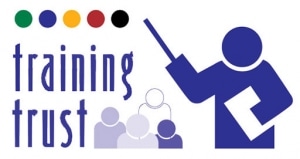APPRENTICES
Apprentice Information
Who can apply
If you want to be an apprentice you can apply for an apprenticeship while you’re still at school. To start one, you’ll need to be:
- 16 or over by the end of the summer holidays
- living in England
- not in full-time education
What can you expect:
- Apprentices must be employed for a minimum of 30 hours per week
- You’ll be paid during your apprenticeship.
- You’re entitled to the National Minimum Wage.
- The current minimum wage rate for an apprentice is £7.55 as of 1st April 2025
- This rate applies to apprentices under 19 and those aged 19 or over who are in their first year.
- You must be paid at least the minimum wage rate for your age if you’re an apprentice aged 19 or over and have completed your first year.
Work Based Learning Apprenticeships:
- To be an Apprentice you have to be employed with a company that will give you the experience to be able to complete your Apprenticeship by working 4 days each week. You will be paid a wage and attend college 1 day a week, or on a block release basis (course dependant).
- To undertake an Apprenticeship you will have to be at a certain level in English and Numeracy.
- Apprenticeships have been designed with the help of employers within the specific trades, so the standard of training can be maintained and accepted by many companies.
Work Based:
- Work based competence is reviewed throughout the apprenticeship. This is to see whether you can complete tasks at the required standard. You will be assigned an assessor at the point of signing up on to the Apprenticeship programme. Your assessor will have done your job over many years, and they will support you throughout your qualification.
College Based Qualification:
- This is the Technical aspect of your apprenticeship and teaches you all the knowledge required to carry out your job effectively. Day release attendance equates to 20% off the job training. A number of practical tasks, written assignments and exams will have to be passed in some apprenticeships.
End Point Assessment:
- An assessment of the knowledge, skills, and behaviours that have been learnt throughout the apprenticeship. The purpose of the assessment is to make sure you meet the standard set by employers and are fully competent in the occupation. It is taken at the very end of the on-programme phase of training when your employer (and in some cases their training provider) is satisfied that they have met the “gateway” criteria to undertake the assessment. End-point assessments are graded and successful completion leads to the awarding of an apprenticeship certificate.
Functional Skills:
- All apprentices aged 16 to 18 at the start of the apprenticeship must complete Functional Skills as part of their apprenticeship standard. This will involve passing an external test for each Functional skill. If any apprentice has a GCSE grade 4-9 (A to C) in Maths and/or English they may be exempt from the external exam. Your Liaison Officer will clarify this for you. Those apprentices aged 19 and above at the start of the apprenticeship will not be required to pass the external test to complete the full apprenticeship standard, only if the learner, employer and provider sign to agree this.
Fast Facts information booklet:
- During your training as an Apprentice, you will be informed of many areas that will affect your day to day life. Some training will be directly linked to your Apprenticeship, for example, Health and Safety awareness. Some are not directly linked but are extremely important to your personal development and progression. This information will be explained and discussed at every learner journey progress review with your Liaison Officer, however, dependant on the duration of your Apprenticeship there may not be time to cover all of the Fast Facts. Please see this link for all Fast Facts.

